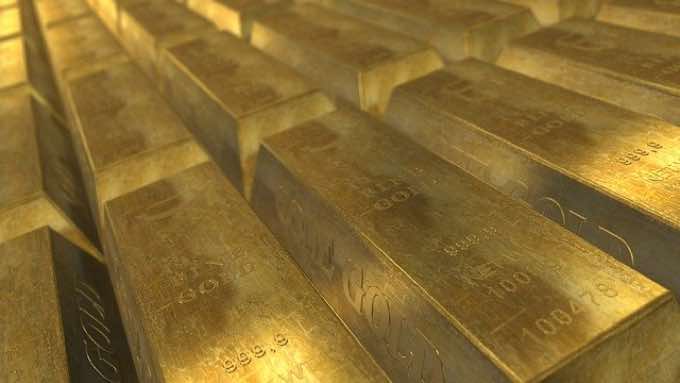
There has been a long-running debate on gold vs. fixed deposit India with regard to the effectiveness of both investment types in terms of earning good returns for the long term. Risk-free investments are often priorities for those who are highly averse towards exposing their hard-earned investments to market fluctuations. If that is the case with you, then you can choose from either FDs (Fixed Deposits) or Gold. However, you should always possess a deep understanding of the underlying factors behind each investment for determining the best one that fits your needs. Delving a bit deeper, there has also been a debate over investing in sovereign gold bond vs. fixed deposit for earning better returns when markets are on the downward spiral and inflation levels are on the higher side. If you are also in a dilemma regarding the same, you are in the right place. In this article, we have discussed different parameters to compare Gold and FDs.
Safety levels and market risks
Gold investments could be continually in a state of flux since gold is a commodity that is traded globally. Various aspects including US dollar prices, imports, gold supply, global trade relations and so on, may impact gold prices. Although there are chances that gold values may increase, any fall in the market may equate to your investment getting stuck in the bargain. Returns from fixed deposits are always free from market fluctuations and risks. You can compare between various banks and financial institutions offering FDs in terms of the rates of interest. This comparison will help you choose the right place to invest while for gold, the returns are more or less market dependent.
Returns
If you were wondering how to invest in gold, you can do so through bonds and ETFs. Gold investments may give you good returns overall and imports of gold into India over the period between 2012-17 has led to gold inflation. The Government has been acting to lower the same which has led to a fall in gold prices before they have started picking up again. Gold investments have given inflation-beating rewards in previous years. The one thing to know is that gold values appreciate owing to devaluation of paper currencies and hence returns may sometimes turn out to be quite nominal.
Fixed deposit rates may vary from 6-8% on an average and the returns remain fixed and locked-in for a specific tenure. Returns remain guaranteed irrespective of the amount that you have deposited. Rates of interest are slightly higher for senior citizens as well.
Tenure flexibility
For investing in gold, you may consider equity, ETFs and bullion among other avenues. Durations usually depend on the investment type that has been selected. Flexible terms are also offered by FDs (fixed deposits). You can choose terms between 7 days and 10 years, based on your specific needs. The investment term flexibility will depend on the specific terms of the NBFC or bank where you have your FD. Short-term FDs generally help in beating inflation levels.
Liquidity levels
Investing in gold is possible through bullion, mutual funds and even equity. This ensures great liquidity levels. You may be able to physically sell gold swiftly although there are chances of losses in the bargain. The returns usually depend on the market scenario at the moment. In the case of FDs, liquidity levels will naturally depend on the financial institution and its terms and conditions. Premature withdrawal of the FD will incur penalties/charges likewise.
Earning income
FDs are income sources for most people and the frequency of interest income can be selected by you. You can choose a cumulative FD where interest will be reinvested for getting you superior returns. Gold will not generate any additional income for you. It is an asset whose overall performance is dependent on external factors and cannot be productive all on its own.
Loans against your investments
You can get loans against both gold investments and FDs, usually up to 80% of the asset value. Loans may be taken at competitive rates of interest from financial institutions in both categories. Rates of interest charged on these loans are usually lower in comparison to rates of interest that are applicable for personal loans.
Income Taxes
Returns from FDs are completely taxable. Yet, there are tax-saver FDs offered by banks which have lock-in periods of 5 years. You can get tax deductions for investments up to Rs. 1.5 lakh annually under Section 80C. However, these FDs cannot be withdrawn prior to their maturity.
What are the Core Takeaways?
The core takeaway is that FDs are perceived as the most secure and guaranteed investment options in the country. They are backed by the Government and enable fixed returns on investments with sizably lower risks in comparison to gold. All leading banks and financial institutions provide FDs to customers. If risks are what you are concerned about, choose fixed deposits over gold. You can earn an additional income from fixed deposits without any worries regarding the loss of value of the asset in question. Gold does not help in generating income and there are chances of incurring major losses in case physical gold is sold instantly since prices of the asset will keep fluctuating in the short term.
Gold rate should thus be considered only when you are looking at investment growth and not income. Gold should be a smaller part of the investment portfolio since it is a key asset which has returns depending on various external aspects. It will not be productive by itself. Income-generating investments are a key priority for young professionals and those in the early stages of their career. FDs can meet their requirements better in this case.









